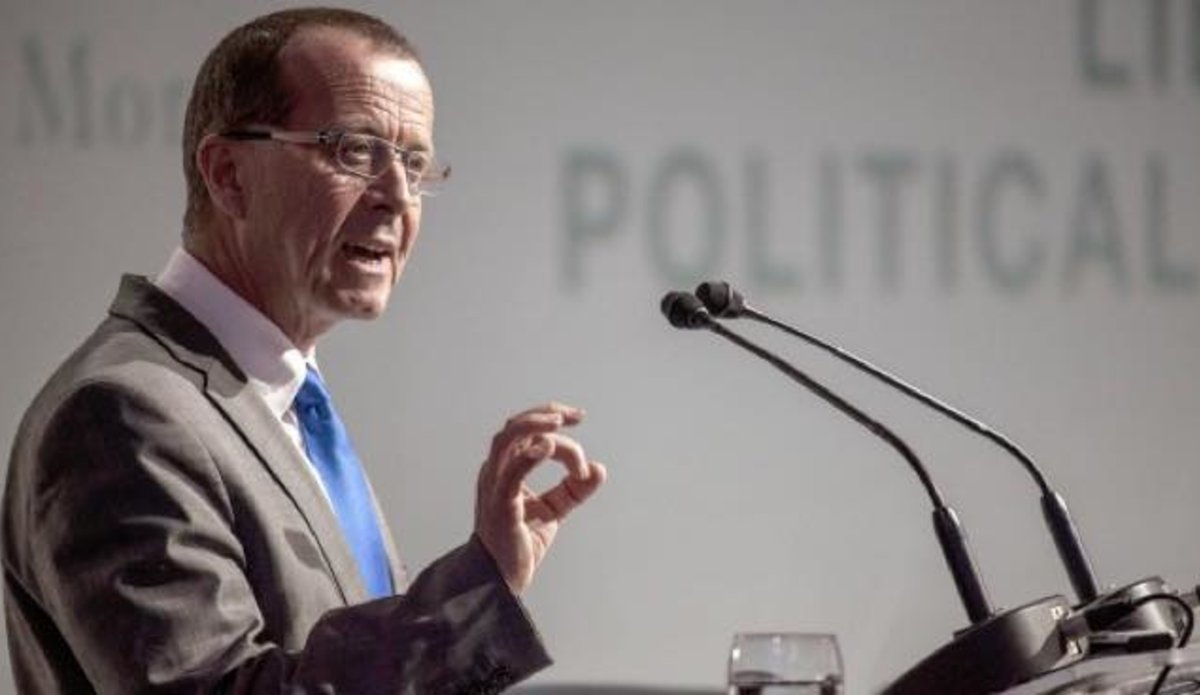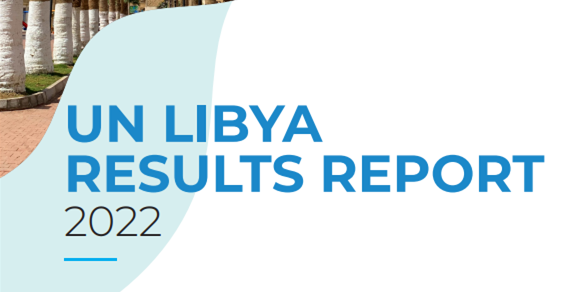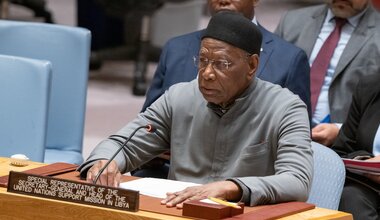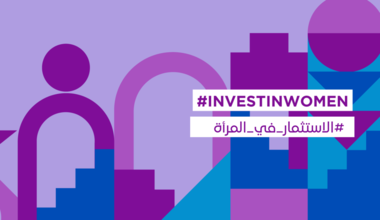Excerpts from Special Representative of the Secretary-General for Libya, Press Conference in Tripoli
17 April 2016 - Thank you very much; it’s a pleasure to be here today among you, the first time with the press here. I am just coming from an extensive meeting with the Presidency Council and this was a meeting among friends and partners.
This is my second visit here since the arrival of the Presidency Council to Tripoli and I encouraged the PC to go on with the roadmap based on the Libyan Political Agreement and what the Libyan Political Dialogue decided on the 10th of March.
The roadmap could not be clearer. First, the House of Representatives has to decide on the Government of National Accord; they have to endorse it. This is a clear guidance of the Libyan Political Dialogue and I will be in Tobruk tomorrow to encourage all to follow this way, to endorse the Government of National Accord.
There are several challenges here now and the most important one is the expansion of Daesh and the security situation. This only can be tackled if there is a clear consensus to go ahead with the GNA; to be formed and take over the ministries here in Tripoli, and I encourage all members of the House of Representatives to meet tomorrow in a constructive spirit of, in the spirit to bring the development of the country ahead, to finally provide peace, prosperity and security all over Libya.
Because the process cannot be hostage to the paralyzes of the House of Representatives and the message of the Libyan themselves, the Libyan Political Dialogue, was very clear that the Presidency Council should come here to Tripoli and should go on with installing the Government of National Accord, and that the government in place has to transfer the power to the GNA.
I am very happy to have seen in the last days many foreign ministers of the European Union coming here and also ambassadors. And these are visits of solidarity with the Presidency Council; this is the support of the international community that this is the way to go.
The problem of terrorism is endemic; the humanitarian situation is dire; hospitals need medicines; people need bread. Only a Government of National Accord can bring the process forward.
I had also today a meeting with some members of the Libyan Political Dialogue here in Tripoli to get their views on how to proceed and I also had a very interesting and a very constructive meeting with the deputy Mufti here in Tripoli.
Today is not a visit, I am not visiting Tripoli anymore, I am working from Tripoli, the United Nations is back in Tripoli, we will be here every day to work with you for the benefit of the people of Libya. And I get from the ambassadors also that they would like to reopen their embassies here. And I heard from Tripoli’s mayors and other mayors last time I was here that they want Tripoli back as the capital of Libya, and this requires the reopening of the embassies once the security situation permits.
The Libyan Political Agreement is the way to peace and prosperity; it is the only plan, there is no other way but to go ahead, and I would like to encourage everybody who still have problem with accepting the Libyan Political Agreement to come on board for the sake of the people of Libya who suffered so much.
Q: (inaudible)
A: The United Nations staff will be in Tripoli 5 days a week. Our work requires a permanent contact with our friends and partners here, but not only with our partners and friends, but also with those who still oppose the agreement … we are not concentrating on the context with the Presidency Council only, but also with all sectors of the society.
Q: How you see the work of the Presidency Council … do you see any violation of the Libyan Political Agreement in their meeting.
I encourage everybody to stay within the limits of the Libyan Political Agreement. There are three main pillars: One is the Presidency Council with its functions. The Second one is the House of Representatives (HoR), and it is very clearly stated in the Libyan Political Agreement that 10 days after the submission of the list of cabinet of the Government of National Accord, the HoR has to decide. This was mid-February and now it is mid-April; there hasn’t been one meeting of the HoR since the 22 of February. The third pillar is the State Council. All those institutions have to be established within the framework of the political agreement; nobody should leave the framework and get out of the box, everybody should stay within the framework of the political agreement and respect its rules…I urge everybody now to implement [the LPA.]
I am more a practical person; I see people suffering here in Tripoli, but also in other places, I see mothers with their babies in the hospital in Al-Bayda who do not have the basic medicines. I see people suffering in Benghazi; this has to stop, and the only way … from all angles, is a strong Government of National Accord that is responsible of all the Libyans. That’s what the Libyan Political Agreement is there for and everybody should respected and then go to work.
Q: With regard what you have mentioned about the medical services and the medical aids; the health sector in Tripoli is suffering and people are suffering and they can’t find the basic medicines; what do you have to say in this regard?
A: Yes I agree with you and I try to go as often as possible to where the vulnerable people are. As United Nations, we are impartial, but this only concerns the politics. We are not impartial when it comes to the values of the United Nations. We are for the protection of the vulnerable peole, for the respect of human rights and enforcing the role of women. These are not impartial, these are very partial positions. We are of the opinion that one refugee is too many, and there must be medical supplies in the hospitals according to good standards. But humanitarian assistance is only short term assistance. I have seen the Italian Foreign Minister brought in humanitarian assistance, and also the French and the German foreign ministers, and this is good. But I ask a question; what if the medicines are used and then what will happen the day after tomorrow.
Q: First: what if the House of Representatives failed again to endorse the GNA; Second: not only some HoR members are still opposing the GNA but also some members of the General National Congress (GNC) here in Tripoli, are there any talks with them?
… Libya left the period of siting together in Skhirat or other places to discuss the future of Libya and now it is time to act and I am very confident that all members of the House of Representatives see the urgency of the situation and that they also will act as the Presidency Council, with its courageous decision to come here to Tripoli, acted. On the second question, yes we talk to everybody, it is very difficult to have consensus but we want have a democratic society; there must be common understanding but not consensus on every single matter. That’s why you have a parliament which can vote … And I encourage everyone to vote for the benefit of the Libyan people.
Q: (inaudible)
A: The Libyan Political Dialogue, not we, decided a clear roadmap, this is was after a very long meeting on the 10th of March in Tunis. It said very clearly that the House of Representatives is the institution that has to endorse the government (GNA), however, until it does so, it urged the Presidency Council to move into Tripoli if the security situation permits in order to orderly, peacefully and immediately start the handover of power. This is like an ambulance, there are injured people inside the ambulance and also pregnant woman; but this ambulance doesn’t have a license plates, but it must go to the hospital otherwise people die, and nobody would say that the ambulance should stay just because it doesn’t have license plates. Now as Mr. Ahmed Meitig just explains, the ambulance is gradually moving, the Presidency Council is here, new ministers will move into the ministries, but it still needs the license plates. I see here many cars without license plates but it’s not okay, everybody should have license plates, but nobody should stop the ambulance from moving to the hospital because the situation is urgent, and this was the decision of the Libyan Political Dialogue on the 10th of March.
 United Nations Peacekeeping
United Nations Peacekeeping UN
UN








